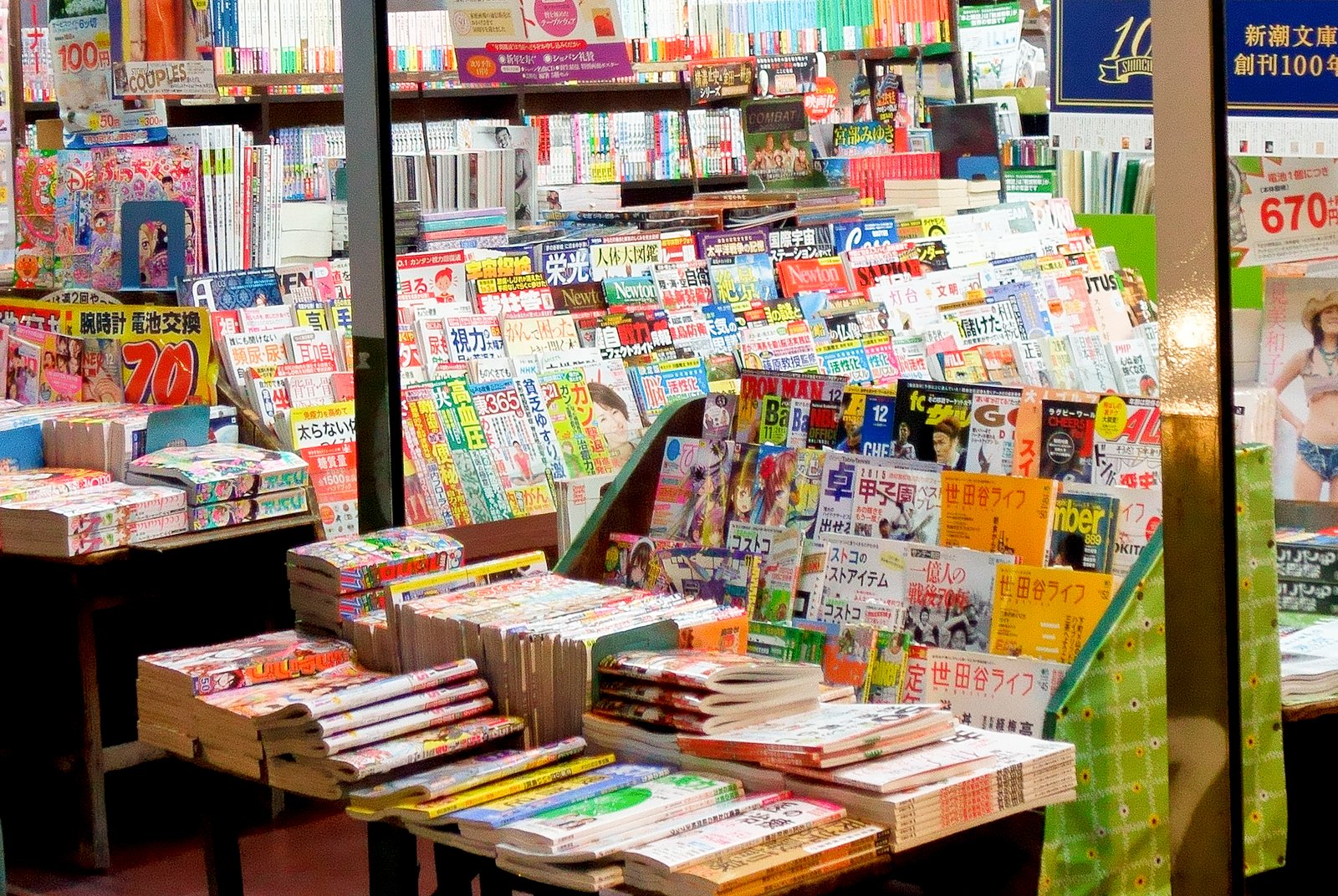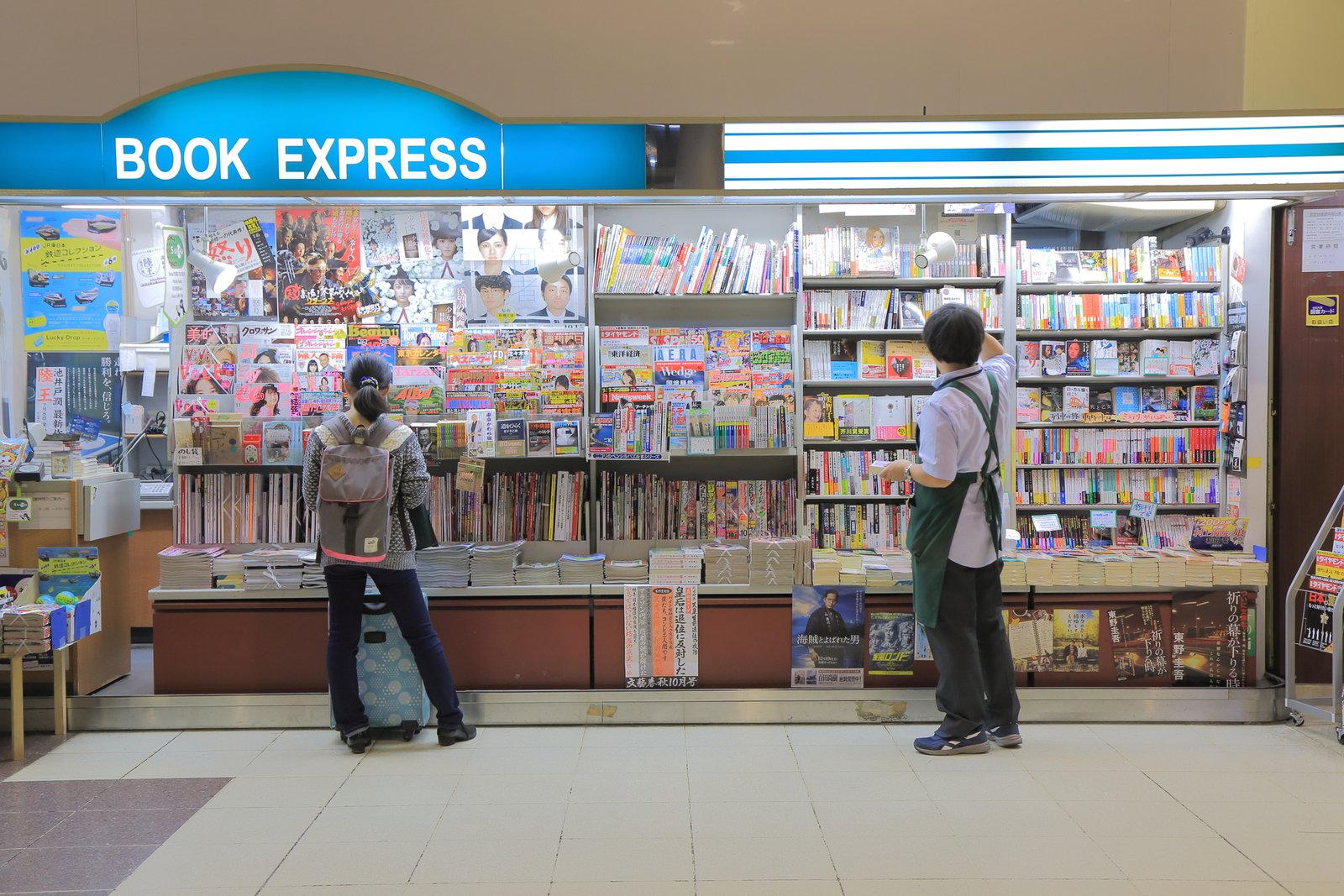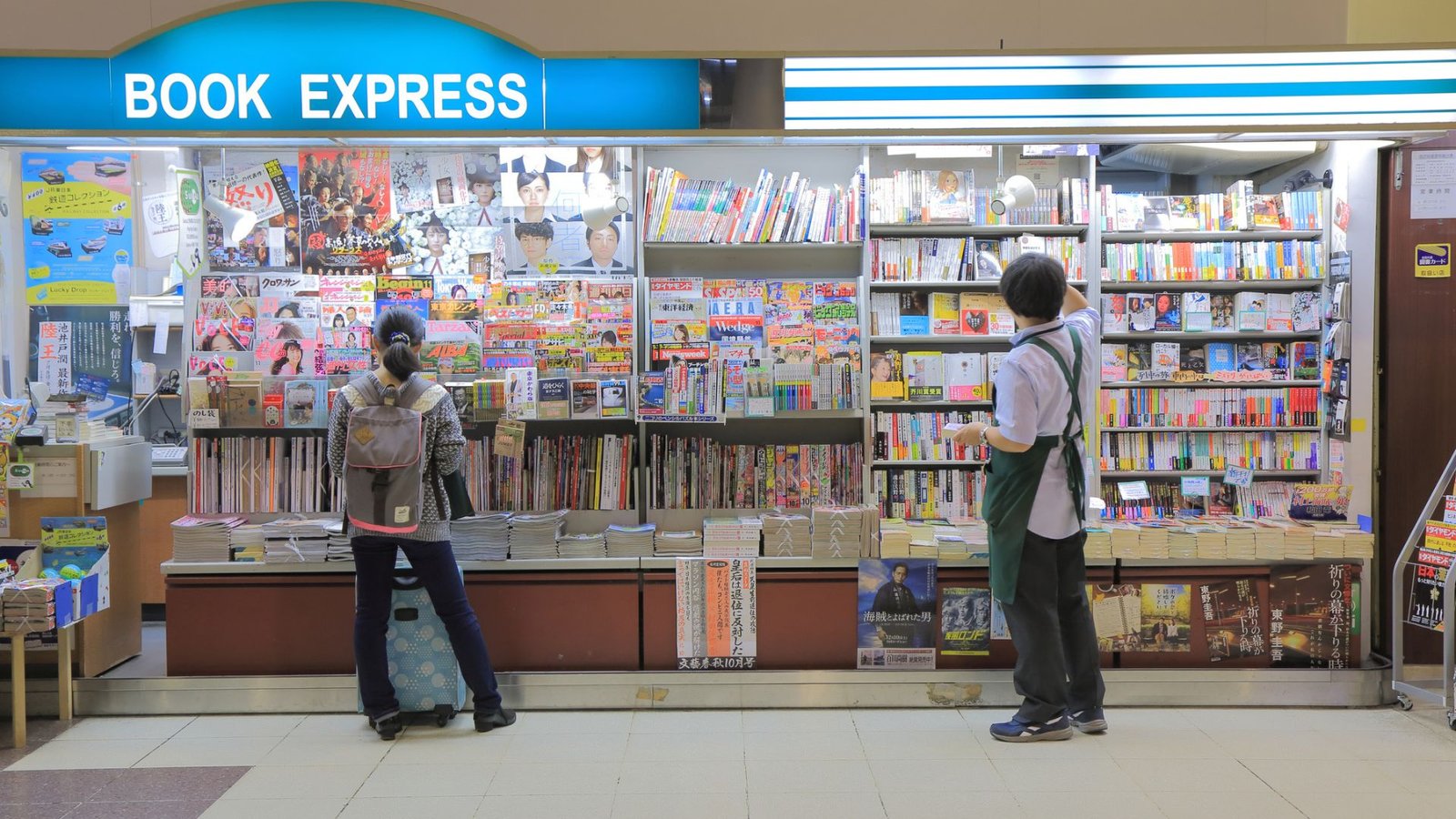Japanese bookstores are globally admired for their meticulous organization, aesthetic charm, and deep respect for literature. Beyond catering to local readers, many Japanese bookstores have expanded their offerings to accommodate international readers, making Japanese literature and global bestsellers accessible to diverse audiences.
This article explores how Japanese bookstores embrace the needs of international readers through foreign-language sections, translations, and online platforms.
Foreign-Language Sections in Japanese Bookstores
Many major bookstores in Japan, such as Kinokuniya and Tsutaya, dedicate sections to foreign-language books, primarily in English. These sections often feature:
- Japanese Literature in Translation
Internationally renowned authors like Haruki Murakami, Banana Yoshimoto, and Yukio Mishima are prominently displayed. - Global Bestsellers
Titles from international authors such as J.K. Rowling, George Orwell, and Margaret Atwood are stocked for global readers. - Language Learning Resources
Foreign readers often find language learning materials, including Japanese grammar guides, kanji workbooks, and bilingual novels.
Bookstores Specializing in International Literature
1. Kinokuniya
One of Japan’s largest bookstore chains, Kinokuniya, has extensive foreign-language sections in its flagship stores.
Highlights:
- Wide selection of English and other foreign-language books
- Japanese literature translated into multiple languages
- E-books and online ordering available
2. Maruzen & Junkudo

Located in major cities like Tokyo and Osaka, Maruzen & Junkudo is another go-to for international readers.
Highlights:
- Dedicated English book floors in flagship locations
- Academic books and reference materials
- Comfortable reading spaces
Translated Works: Bringing Japanese Literature to the World
Japanese bookstores play a crucial role in popularizing translated works. Publishers often collaborate with bookstores to promote English translations of Japanese novels, ensuring that readers worldwide can enjoy classics and contemporary stories.
Some notable translated works include:
- Norwegian Wood by Haruki Murakami
- The Tale of Genji by Murasaki Shikibu
- Snow Country by Yasunari Kawabata
These translated editions are often prominently displayed in stores catering to international visitors.
Online Platforms for International Readers
For those unable to visit Japan, many bookstores provide online services tailored to international readers:
1. Kinokuniya Online Store
Offers global shipping, allowing readers worldwide to access Japanese novels and foreign-language titles.
2. Amazon Japan
Provides an extensive range of Japanese books with options for English-language interfaces and international shipping.
3. CDJapan
Specializes in Japanese novels, manga, and light novels, with shipping options for overseas customers.
Bookstores Embracing Cultural Exchange
Some Japanese bookstores take cultural exchange to the next level by organizing events for international readers:
- Book Readings and Author Talks
Events featuring bilingual discussions and readings of Japanese literature. - Workshops and Language Classes
Sessions teaching Japanese culture and language through literature. - Cultural Exhibits
Showcasing Japanese literary history, often accompanied by translated materials.
Popular Bookstores Among Tourists
1. Daikanyama T-Site (Tsutaya)
A visually stunning bookstore in Tokyo, Daikanyama T-Site caters to international readers with:
- A curated selection of English books
- Bilingual staff to assist visitors
- An adjoining café perfect for reading
2. Jimbocho (Tokyo’s Book District)
Known as Tokyo’s “Book Town,” Jimbocho features numerous stores offering English translations and rare finds, ideal for international visitors.
3. Kyoto International Manga Museum
For manga lovers, this museum doubles as a library and store, with translated manga and anime-related books available for purchase.
Efforts to Make Japanese Bookstores International-Friendly
- Bilingual Staff:
Many large bookstores employ bilingual staff to assist international customers with navigating the store or finding specific titles. - Digital Integration:
QR codes and digital kiosks often offer multilingual interfaces, making it easier for readers to locate books. - International Promotions:
Collaborations with global publishers ensure that international editions of Japanese books are prominently featured.
Conclusion
Japanese bookstores are evolving to meet the needs of international readers by offering foreign-language sections, translated novels, and online accessibility. Whether you’re exploring Tokyo’s iconic Kinokuniya or browsing online from abroad, Japanese bookstores ensure that literature transcends borders, making it a truly universal experience.
For book lovers around the world, Japan’s bookstores provide not just stories, but a cultural bridge that connects readers with the heart of Japanese literature.











